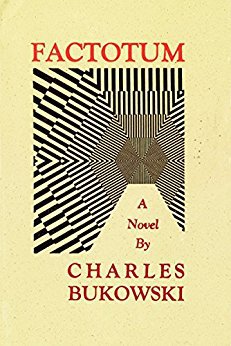 Alienated labour, a distinctive trait of Capitalism, is extensively represented in Charles Bukowski’s Factotum. I am going to show how the number of ways in which this happens – through language, scenes, characterization and narrative structure – stands to signify the totalizing force of Capitalism.
Alienated labour, a distinctive trait of Capitalism, is extensively represented in Charles Bukowski’s Factotum. I am going to show how the number of ways in which this happens – through language, scenes, characterization and narrative structure – stands to signify the totalizing force of Capitalism.
Marx identifies ‘estranged labour’ as the cause of the transformation of man’s intrinsic need for other men, therefore for the social, ‘into a means of his individual existence’ (Marx, 1844, 7). Individualism and estrangement as defined by Marx are constants in Factotum. The novel is divided into eighty-seven chapters, each one of them not longer than a few pages and as short as half a page. Its first word is the pronoun ‘I’, frequently used throughout the book (Bukowski, 1975, 1). Finally, the protagonist explicitly addresses the need for solitude in chapter 17, where he defines it as something he depends on, rather than a positive quality (40). These narrative and stylistic features suggest isolation, repetitiveness, individualism, which are symptomatic of the Marxist notion of alienation. Chinaski also admits to be ‘terrified by life, at what a man ha[s] to do simply in order to eat, sleep, and keep himself clothed’ (67). This reinforces the idea that his inability to maintain a stable job does not depend on his skills, but rather on his aversion to the whole system of work. Therefore, according to Marx’s thought, the series of unskilled and morally and spiritually ungratifying jobs Chinaski undertakes would turn him into an individualist, an anti-social, an outsider.
Factotum thus reveals an internal incongruence of the capitalist system. If we consider Chinaski an outsider in the sense of him being excluded from society for an anti-social attitude caused by the mechanisms of ‘estranged labour’, then he would be part of Capitalism in his capacity of being affected by it. On the other hand, his refusal of permanently working for an employer, that is, participating in the emotionally detached production of goods, places him outside the processes of Capitalism. Chinaski can therefore be considered an outsider both to society and Capitalism. The result of this discrepancy exiles the protagonist in a limbo, a state of being reflected by his nomadism across the US and by his personality. The ease with which he chooses places to live, sexual partners and jobs indicates a complete lack of interest in anything, as well as an awareness of the capitalist process.
The representation of Capitalism as an omnipotent power especially occurs in the characterization of people at the margins of society and how they cope with the capitalist process. Hugh the janitor, for instance, expresses strong feelings of anger and disappointment against his employers and colleagues (who are part of the system) and is depicted mad (151). For Chinaski, it is different. He falls into poverty and homelessness, suggesting that the only escape would be living at the margin of the capitalist society, like Hugh, but, ultimately, he buys himself a ticket to a show, metaphorically contributing to the show business and therefore yielding to the system.
BIBLIOGRAPHY
Bukowski, Charles. Factotum. 1975. London: Allison & Busby, 1990.
Marx, Karl. ‘Estranged Labour’. Economic & Philosophic Manuscripts of 1844. 1844. Moscow: Progress Publisher, 1959. Available at: https://www.marxists.org/archive/marx/works/1844/manuscripts/preface.htm (accessed 20/10/17).
spread the word:- More




![[Love yourself. It is important to stay positive because beauty comes from the inside out]](/ai/061/786/61786.jpg)
